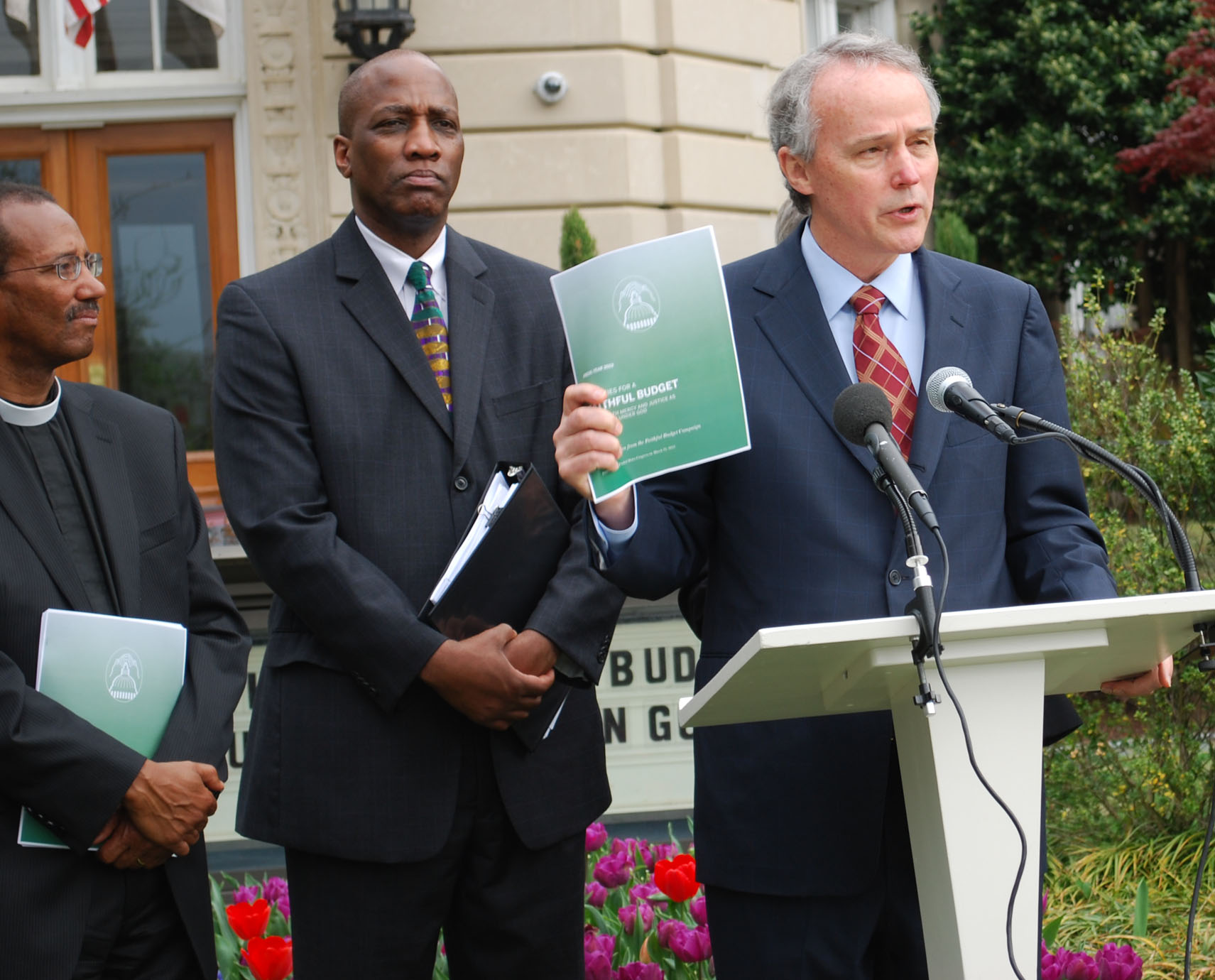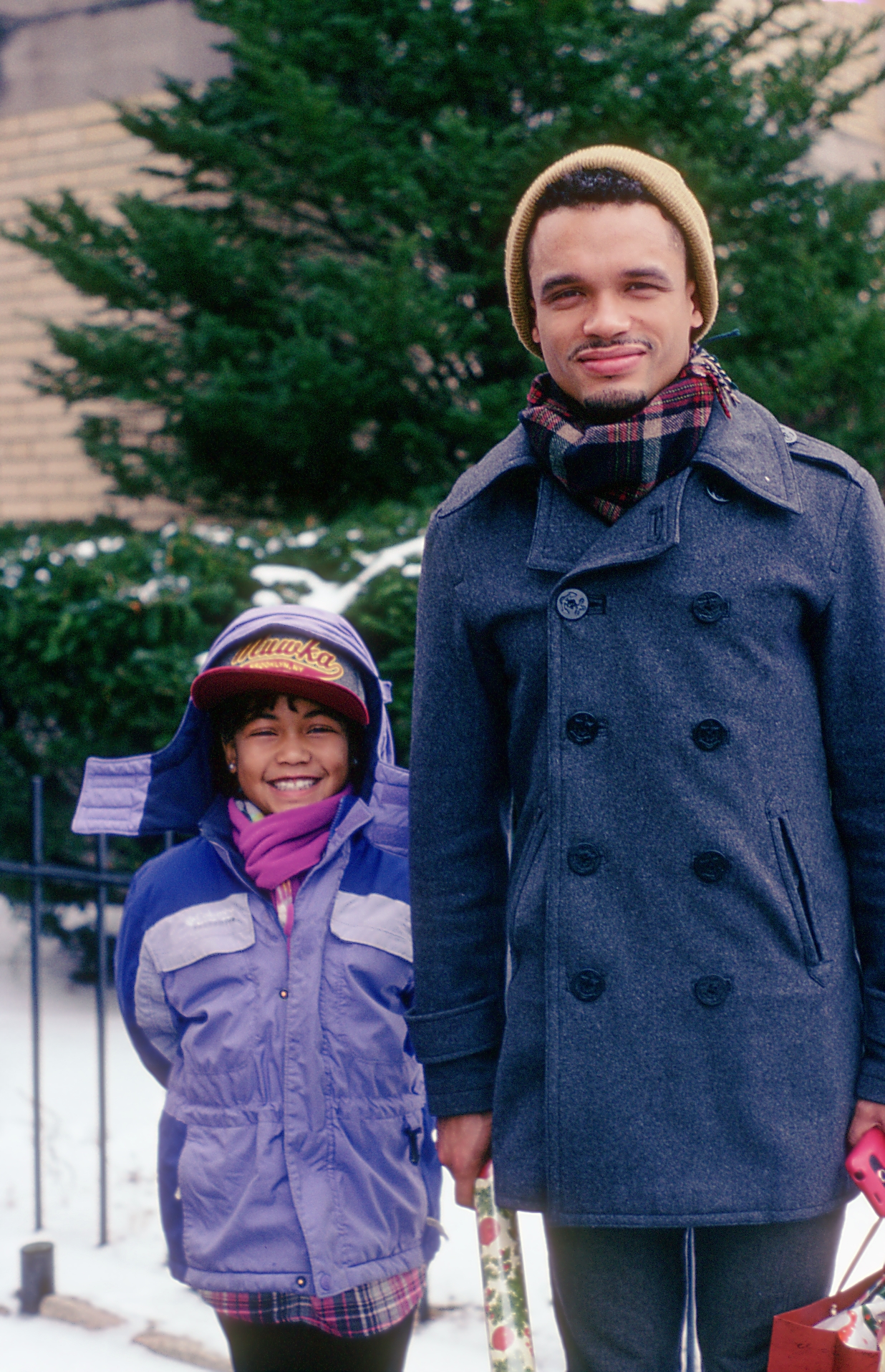‘The budget is like breathing; no one pays attention to it until someone is choking to death’

WASHINGTON — Standing in stark contrast to partisan budget proposals that seek first to address a bottom line instead of the nation’s needs and priorities, some of America’s top religious officials have unveiled for congressional consideration a “Faithful Budget” proposal.
The Priorities for a Faithful Budget is a set of comprehensive and compassionate budget principles that will protect the common good, value each individual, and help lift the burden on the poor. The Faithful Budget can be read in its entirety here.
On Monday, March 26, 2012, nearly 1,000 Christian Americans from across the country convened on Washington, D.C., to meet with their Congressional Representatives and ask them to support the Faithful Budget. This action, organized by Ecumenical Advocacy Days, could not have come at a more needed time, as Monday also marked the beginning of the House’s floor debate of its budget resolution, which, if approved, will significantly cut programs for hungry and poor people, slashing the Supplemental Nutrition Program (SNAP, formerly food stamps) by billions, along with other important protections for the vulnerable among us, including: Earned Income Tax Credit, Child Tax Credit, Head Start, and WIC (which provides federal grants to states for supplemental foods, health care referrals, and nutrition education for low-income pregnant and postpartum women, and to infants and children who are found to be at nutritional risk).
Rev. Michael Livingston, Director of the NCC Poverty Initiative, declared these budget proposals unacceptable:
An advocate from West Virginia once said “The budget is like breathing; no one pays attention to it until someone is choking to death.” Now we’ve seen the budgets of the Administration and House of Representatives, and neither will give the “least of these” the breathing room they need to live with dignity.
The Faithful Budget, on the other hand, lays out ideas for restoring economic opportunity, ensuring adequate resources for the country’s fiscal needs, fostering true security, reducing poverty and hardship, taking responsibility for future generations, caring for the environment, improving access to health care, and recognizing the robust role of government in combating poverty.
“Drafted by Jews, Christians, Muslims, and other faith leaders, the Faithful Budget embraces our role as a united nation to take care of the most vulnerable among us, while making balanced investments in our future,” said the Rev. Gradye Parsons, Stated Clerk of the Presbyterian Church (U.S.A.). “By following our sacred imperative to ‘love our neighbor as ourselves,’ we not only can pass a budget that makes sense, but pass a budget that begins to create a more just society and a healthier world.”
Included in the Faithful Budget Preamble, which was endorsed by 37 religious denominations and organizations, is a call to Congress and the President to enact a budget that “enhances the well-being of all Americans and to make a good faith increase in funding for the impoverished and the vulnerable here and abroad in fiscal year 2013.”
“For too long, our nation’s political leaders have fallen into a trap of starting with an arbitrary top-line budget number and then working within its parameters to fund the programs on which we all rely. Rather than follow Washington’s example, the Faithful Budget focuses on our national needs and priorities,” said Sister Simone Campbell, Executive Director of NETWORK: A National Catholic Social Justice Lobby. “We hope our Faithful Budget model can serve as a model that Congress and the Obama Administration can use to help build a more perfect union.”
Following the unveiling of the Priorities for a Faithful Budget, the religious officials, among whom are some of the presiding religious officials of the country’s largest denominations, were scheduled to meet with the offices of House Speaker John Boehner and Senate Majority Leader Harry Reid to present the Faithful Budget in-person for congressional consideration.
“Regardless of if you are Republican or Democrat, a Christian, Jew, Muslim, or a follower of another faith, the Faithful Budget embraces the reality that we live together in a community, not agreeing on everything, but sharing in the common purpose of bettering our nation,” said Dr. Sayyid Syeed, National Director of the Islamic Society of North America. “The Faithful Budget seeks to transcend Washington’s current political climate and find common ground.”
“Whether guided by the words of Isaiah, Luke, or Muhammad, the values included in the Faithful Budget are inherent in all of our faiths,” said Rabbi David Saperstein, Executive Director of the Religious Action Center of Reform Judaism. “During this time of great need in this country, it is essential that we lift our collective voices to speak to the social and ecological challenges our nation faces. The Faithful Budget begins that effort.”
The Faithful Budget is a continuation of the Faithful Budget Campaign, an effort launched by the religious community in May 2011 to lift up faithful voices on behalf of the nation’s most vulnerable in order to encourage the administration and Congress to maintain a robust commitment to domestic and international poverty assistance programs.
In July, the campaign organized high-level meetings with policymakers, a Washington fly-in of top religious leaders, and daily prayer vigils near the U.S. Capitol Building. The Faithful Budget Campaign also orchestrated a prayerful gathering in the Capitol Rotunda that culminated with the arrest of 11 faith leaders for refusing to stop praying on behalf of the nation’s most vulnerable.
In November, the Faithful Budget Campaign held a Super Prayer Vigil outside of the White House and around the country that called on members of the failed Congressional “Super Committee” to reject efforts to reduce the deficit by placing an undue burden on the poor while shielding the wealthiest from additional sacrifice.
Christian, Jewish, and Muslim institutions and other faith-based organizations united by shared beliefs to lift up the nation’s most vulnerable are mobilizing across the country to impact the national budget dialogue by demonstrating that America is a better nation when we follow our faiths’ imperatives to promote the general welfare of all individuals.
 Your Faithful Budget Toolkit
Your Faithful Budget Toolkit
Learn more about the the Faithful Budget Campaign
Read the entire Faithful Budget proposal
Bring the Faithful Budget into your house of worship through this prayer litany
Read “A Faithful Budget: Addressing the Needs Deficit” by Leslie G. Woods, PC(USA) Office of Public Witness
Follow and tweet comments at #FaithfulBudget on Twitter
Follow the campaign on the NCC Poverty Initiative Facebook page
Use these supporting materials when advocating for the Faithful Budget, including talking points, hand-outs, and media advisories
ACT NOW: Sign on to the Faithful Budget Preamble
ACT NOW: Contact your congressperson in the House and ask him/her to support the Faithful Budget. Find contact information here. Don’t know the name of your representative? No problem! This service will identify your congressperson for you. Sign the NCC Poverty Initiative petition.
Faith-based Organizations Endorsing the Preamble—
Principles of the Faithful Budget
American Friends Service Committee
Arkansas Interfaith Alliance
Bread for the World
Center of Concern
Center on Conscience and War
Christian Church (Disciples of Christ) in the United States and Canada
Christian Reformed Church Office of Social Justice
Church of the Brethren
Church World Service
Columban Center for Advocacy and Outreach
Commission on Social Action of Reform Judaism
Conference of Major Superiors of Men
Evangelical Lutheran Church in American
Faithful Reform in Health Care
Franciscan Action Network
Friends Committee on National Legislation
Sisters of Mercy of the Americas Institute Leadership Team
Islamic Society of North America
Jesuit Conference
Jubilee USA Network
Justice, Peace and Integrity of Creation Office, Missionary Oblates of Mary Immaculate, United States Province
Leadership Conference of Women Religious
Maryknoll Office for Global Concerns
Mennonite Central Committee U.S.
Minnesota Council of Churches
Missionary Servants of the Most Holy Trinity
Muslim Public Affairs Council
Sisters of the Good Shepherd: The National Advocacy Center
National Council of Churches of Christ, USA
NETWORK: A National Catholic Social Justice Lobby
Pax Christi USA
Presbyterian Church (U.S.A), Office of Public Witness
Progressive National Baptist Convention
Unitarian Universalist Association of Congregations
United Church of Christ, Justice and Witness Ministries
United Methodist Church, General Board of Church and Society






Unbound Social